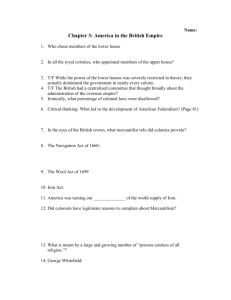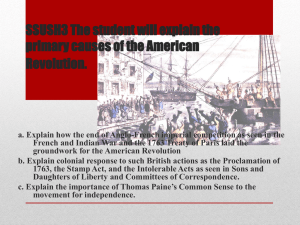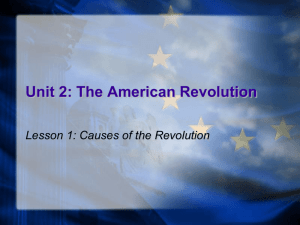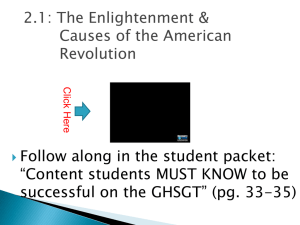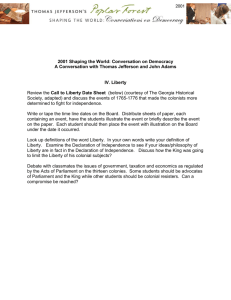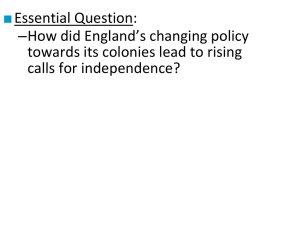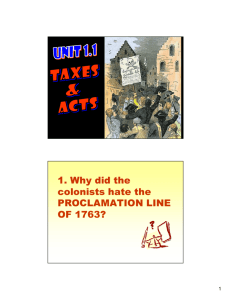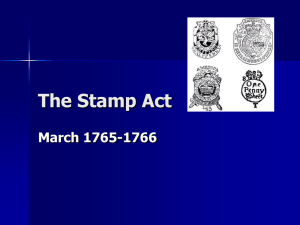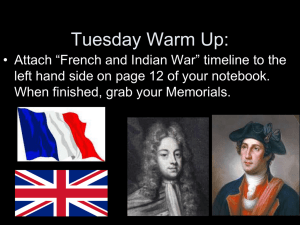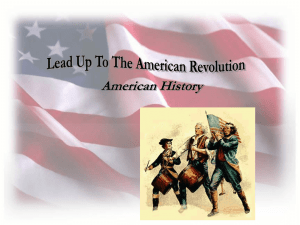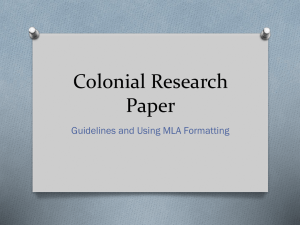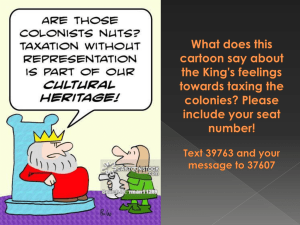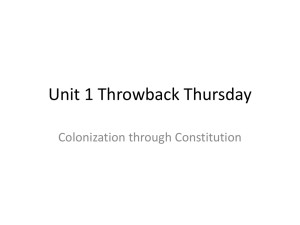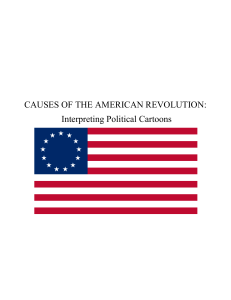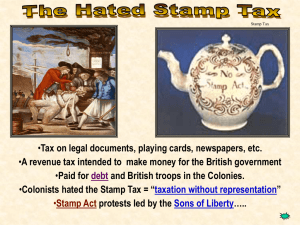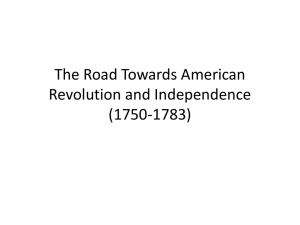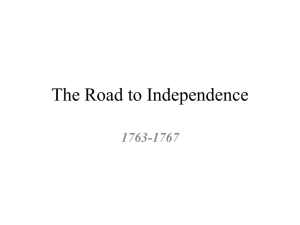Standard 3 - bervelynbenson
advertisement
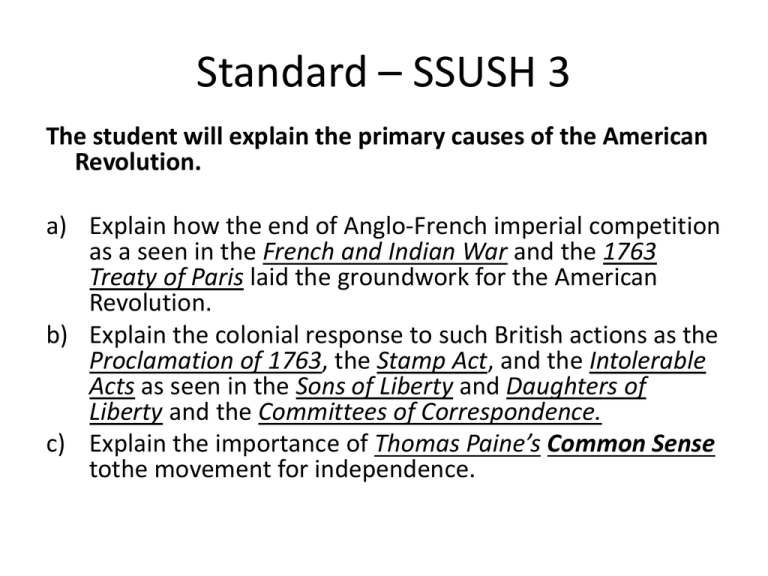
Standard – SSUSH 3 The student will explain the primary causes of the American Revolution. a) Explain how the end of Anglo-French imperial competition as a seen in the French and Indian War and the 1763 Treaty of Paris laid the groundwork for the American Revolution. b) Explain the colonial response to such British actions as the Proclamation of 1763, the Stamp Act, and the Intolerable Acts as seen in the Sons of Liberty and Daughters of Liberty and the Committees of Correspondence. c) Explain the importance of Thomas Paine’s Common Sense tothe movement for independence. French and Indian War 1754-1763 Ohio River Valley George Washington - 22 years old British and American Colonists Vs. French and Indians French & Indian War British in war with French/Indian alliance British wins war/wins French land all the way to the Mississippi River British tax colonies – Stamp Act British have war debt COLONISTS fear British Tyranny through taxes, a step toward Revolution 1763, Treaty of Paris • Treaty officially ended French and Indian War • France lost most of its North American territories • Britain gained Canada and all the land East of the Mississippi River • Britain becomes dominant power in the world Tension in the Colonies British Actions Proclamation of 1763 (Colonists can’t settle west of App. Mtns.) Stamp Act (Required colonists to purchase a stamp for all printed materials) Intolerable Acts (British troops can be quartered in colonial homes; closes the port of Boston; blatant tyranny that other colonies feared would happen to them] Colonial Reactions Sons and Daughter of Liberty (printed pamphlets, gave speeches – rallied people for colonial cause) Committees of Correspondence (formed to pass information from colony to colony regarding British aggression) Proclamation of 1763 •British law that prohibited colonists from settling lands west of Appalachians •Colonists angry and disobeyed law frequently leading to clashes with Indians Stamp Act •First time – British Parliament directly taxed American colonists •First Time – All thirteen colonies protested a British policy •Led to tensions between England and the colonies that eventually led to American Revolution Sons of Liberty Tree of Liberty • Began in Boston and spread to every colony • Started as a protest against the Stamp Act • Tactics – Effigies, vandalism, tar/feather loyalists Tar and feathering by Sons of Liberty Daughters of Liberty • American women involved in protest movement • Supported Boycott of British Goods • Made Fabric – “Homespun” instead of buying British cloth • Abigail Adams – best example Committees of Correspondence • Groups committed to writing letters about British actions and their colony’s response • Thomas Jefferson suggested that every colony have one • Way of communicating and uniting the colonial response to British actions – example - Boycott Intolerable Acts • Series of Laws designed to punish Boston for the Tea Party vandalism. • Impartial Administration of Justice Act, – Allowed governor to move trials to other colonies or even to England • Massachusetts Bay Regulating Act – banned all town meetings • Boston Port Act – closed the port of Boston until the price of the dumped tea was recovered – moved the capital of Massachusetts to Salem – made Marblehead the official port of entry • Quartering Act – allowed royal troops to stay in houses or empty buildings • Quebec Act – granted civil government and religious freedom to Catholics living in Quebec. Thomas Paine’s “Common Sense” •Most influential Pamphlet in history •Convinced Americans to declare independence after Lexington and Concord
